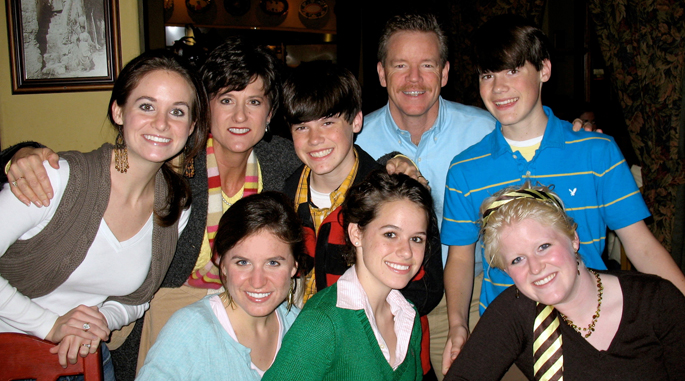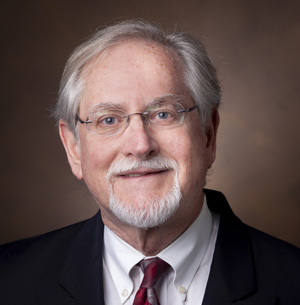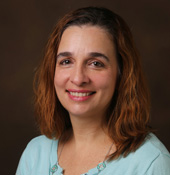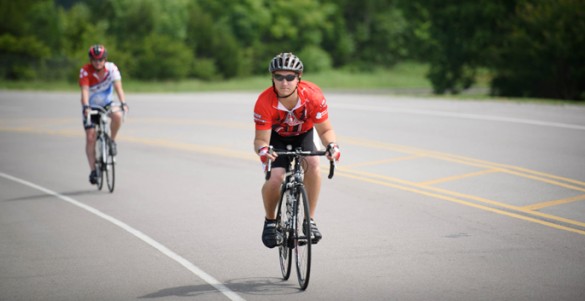
When the Mullis family straps on their helmets on June 11 to ride in the local Tour de Cure, one of a series of cycling events held nationally to benefit the American Diabetes Association (ADA), they will remember a day seven years ago that motivated their annual participation in the event.
On May 1, 2009, Lea Anne Mullis, LPN, frantically drove her typically healthy 22-year-old son David to the Vanderbilt University Hospital Emergency Department. He barely remembers the 48 hours he spent in the intensive care unit, but David soon learned that he had type 1 diabetes, a form of the disease that affects 5 percent of persons with diabetes.
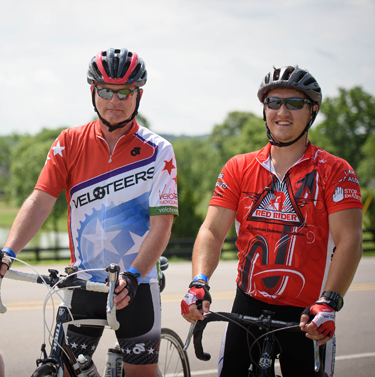
With a blood glucose level of more than 1,000 mg/dl (a normal level following a meal is less than 140 mg/dl), David had developed severe ketoacidosis, a life-threatening buildup of acids in the blood.
“We had just been on a spring break trip, and I remember that it seemed like every exit we passed, I had to stop to go to the bathroom,” David said. “I was drinking a gallon or two of water a day, and I was constantly thirsty. I went from weighing 190 pounds in April to 130 pounds in May. It was odd, but I didn’t even realize I was losing weight. I thought if my two legs will still carry me, then I must be just fine.”
Lea Anne Mullis said she was initially angry with herself for not realizing what was happening with her son, but she said no one in the family saw all of his symptoms, so it was difficult to put the pieces together.
“I still get teary-eyed, I do,” said Mullis, who now works in the Vanderbilt Eskind Diabetes Center, one of three centers in the United States accredited by the American Diabetes Association for treating adult, pediatric and gestational diabetes. “But, now when I get up every day, I feel like I have a real purpose. I help David, and I help other people like David who are managing their diabetes.”
Proceeds from Tour de Cure rides fund research, education and advocacy efforts that support the 29 million children and adults in the United States with diabetes, and the 86 million with pre-diabetes. Vanderbilt University and VUMC scientists have successfully competed for ADA research grants and will receive $275,744 in the current year, with total ADA funding for multi-year grants of $832,968.
“The American Diabetes Association is the leading organization in the world where patients, health care providers and researchers are working together to improve the lives of people with diabetes by supporting research to discover new ways to treat diabetes and to advocate for patients with diabetes,” said Al Powers, M.D., director of the Eskind Diabetes Center and president-elect of the ADA. “The Tour de Cure reflects this collaboration and is a vital fundraiser for the ADA. The ADA allocates its funds to the very best new ideas based on independent review. Fortunately, scientists at Vanderbilt are among those chosen as recipients of ADA research grants.”
David Mullis, who recently graduated from Middle Tennessee State University with a business degree, now uses an insulin pump, a small device that delivers insulin in a continuous dose throughout the day and surge or “bolus” doses at mealtimes. He’s participated in two VUMC clinical research trials related to diabetes, and he’s been riding in the Tour de Cure with his family since 2010. Both of these activities, he said, are a small way to give back to the Vanderbilt community that saved his life and taught him how to live a healthy life with diabetes.
“When I first learned I had type I diabetes, I thought it would be like living without an arm,” he said. “But I do very well thanks to advancements in diabetes research and technology. Doing the ride and the clinical trials — these are easy ways to help people with diabetes. If there was something that was difficult to do that would help one day cure diabetes, I would do that, too, but riding the Tour de Cure is easy and fun.”
When the Mullis family decided they would ride in their first Tour de Cure, David’s father, Tim Mullis, ran out and bought a $199 bike at Wal-Mart and David borrowed a bike to ride. They’ve since bought road bicycles to ride as Team Mullis. Lea Anne does the shorter 10-mile ride and volunteers to support the longer rides, while both David and Tim ride the 30-mile route.
“The great thing about the Tour de Cure is that anyone, from kids on their BMX’s doing the 10-mile ride to adults on cruise bikes, will enjoy the Tour de Cure,” David said. “There’s a place for everyone, and it’s just a great, fun event.”
This is the 25th year for Tour de Cure, and the local event is Saturday, June 11, at the Lawn at Franklin Park, 6100 Tower Circle in Franklin, Tennessee. The first check-in is at 6 a.m. for the 100-mile ride, with a 10-mile fun ride, a 30-mile ride, and a 62-mile ride also planned to begin that morning.
Organizers expect around 250 riders and 30 teams, and the local goal is to raise $138,000. Visit www.diabetes.org/nashvilletour to sign up to ride on the Vanderbilt Diabetes Center team (Use code Vandy2016 to join the Vanderbilt Diabetes team) or to donate to support a team.













